Oklahoma execution: James Coddington gets lethal injection for fatal beating 25 years ago
McALESTER — Oklahoma on Thursday carried out the execution of convicted murderer James Coddington, who forgave Gov. Kevin Stitt with his final words but made no further expressions of remorse.
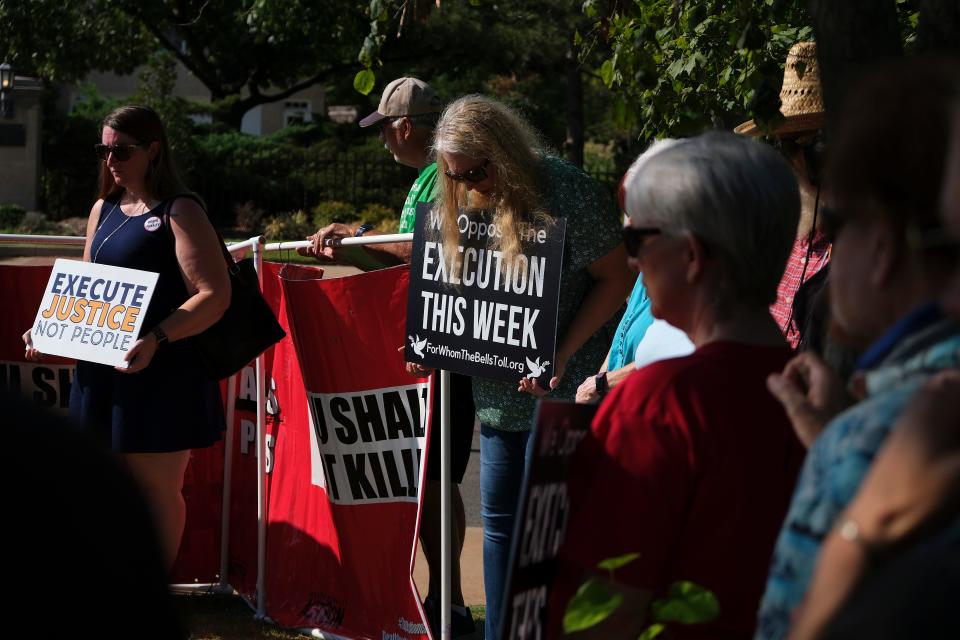
It was the first of 25 executions scheduled at the Oklahoma State Penitentiary through the end of 2024.
Coddington was declared dead at 10:16 a.m. He was 50.
The 14-minute execution was carried out without any of the complications that have resulted in harsh criticism of the state's lethal injection process in the past. "Absolutely no issues," Corrections Department Director Scott Crow said. "The execution today went in accordance with the protocol with no issues at all."
The inmate's prior expressions of deep remorse for his actions 25 years ago brought him widespread support in the end. His backers said he had transformed himself in prison.
The execution by lethal injection came a day after the governor rejected a clemency recommendation that would have changed his sentence to life in prison without the possibility of parole.
"Gov. Stitt, I don't blame you and I forgive you," Coddington said on the execution gurney seconds before the first drug, the sedative midazolam, was injected.
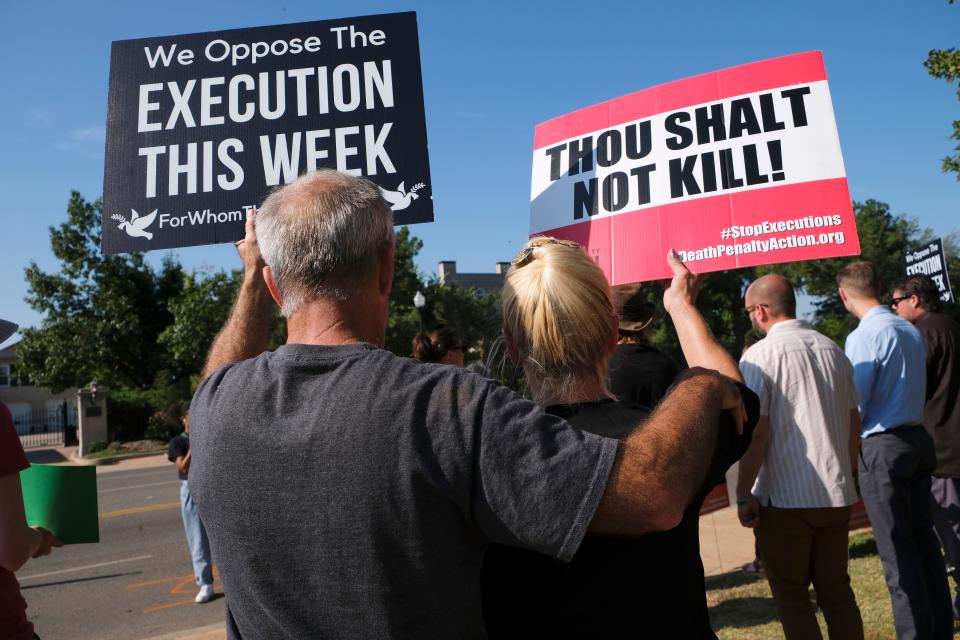
He also spoke of his love for his family, friends and lawyers.
Stitt, a Republican, denied clemency during an election year that has seen him attacked as being soft on crime. One dark money group, the Sooner State Leadership Fund, has spent millions of dollars criticizing Stitt, particularly over his commutation of prison convicts.
Coddington admitted to killing, said he was remorseful
Coddington was executed for murdering Albert Troy Hale, a friend and co-worker, during a cocaine binge and robbery spree in 1997.
He went to Hale's house in Choctaw to borrow $50 for cocaine after robbing a convenience store, according to his own statements in the case. Hale, 73, turned him down and told him to leave.
Coddington then beat Hale with a claw hammer, took $525, left and robbed five more convenience stores. Hale survived a day, dying at a hospital on March 6, 1997, after being found by son Ron Hale.
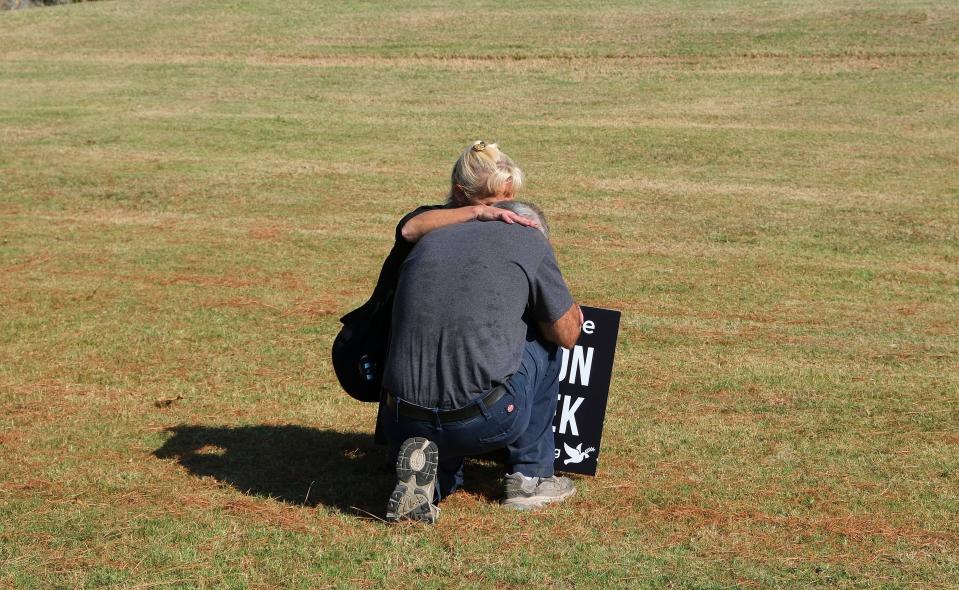
Coddington confessed after he was arrested by police outside his south Oklahoma City apartment two days after the attack.
His attorney, Emma Rolls, called him "the most deeply and sincerely remorseful person I have ever represented." She wept Thursday as she watched the execution from the front row of the viewing room. Coddington lifted his head after finishing his last statement and gave her a thumbs up.
A son of the murder victim told reporters after the execution that Coddington's remorse was not real.
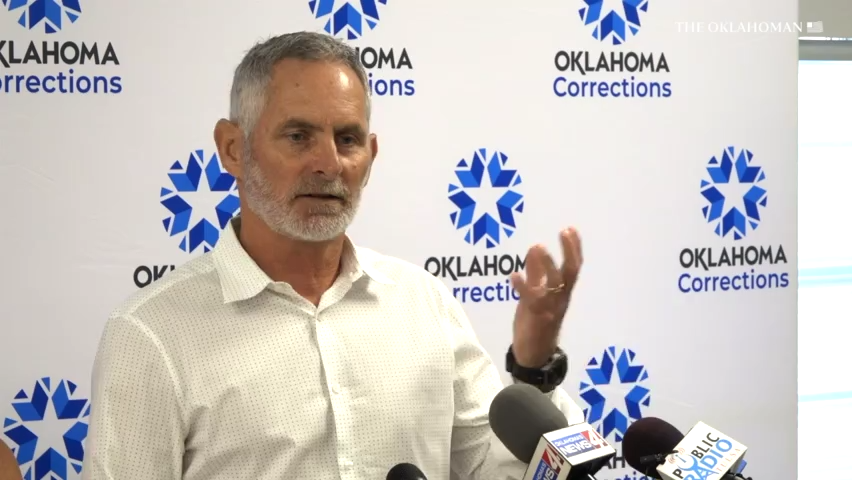
"He proved today that it wasn't genuine. I mean, his final statement, he thanked his girlfriend and his attorneys. But he never apologized. He never mentioned my dad. He never mentioned my family. So there was no true remorse.
"He sold it well, and his attorneys sold it well, to the clemency board. But there's no remorse."
One of his robbery victims had said she forgave him after he apologized during a phone call from prison this month.
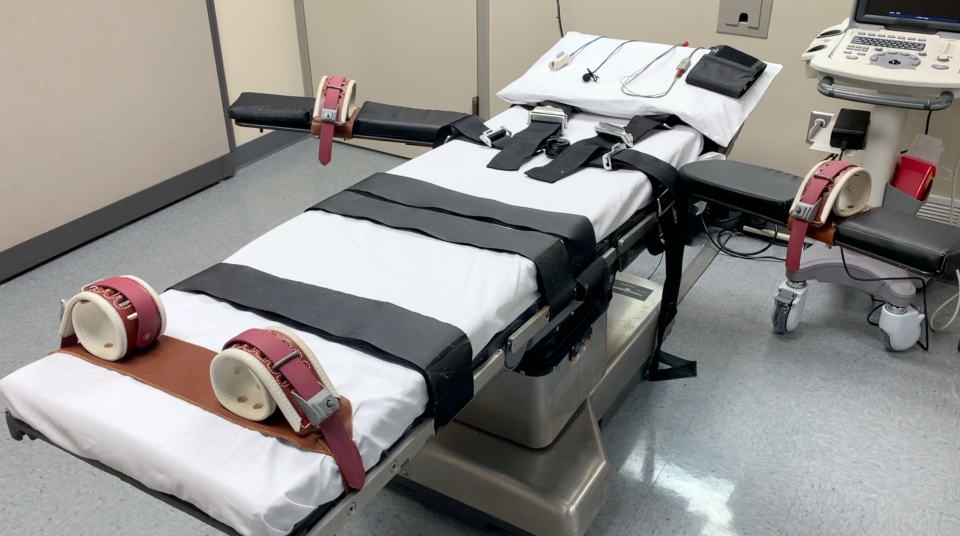
"I truly believe he is remorseful," Trisha Allen said in an affidavit sent to the governor. "He explained to me that his transformation from anger to peace and compassion took a long time and was a difficult process. He also explained that the more calm he was able to experience, the more opportunity he had to seek God."
Coddington's execution first of 25 scheduled in Oklahoma through the end of 2024
For his traditional last meal Wednesday evening, Coddington requested two cheeseburgers, two crunchy fish sandwiches, two large fries and a large cola, the Corrections Department said.
Witnessing the execution were reporters from The Associated Press, The Oklahoman, a Tulsa public radio station, an Oklahoma City television station and a Tulsa television station.
"It was pretty par for the course of a midazolam execution," the AP reporter, Sean Murphy, said.
In the execution chamber with Coddington was his spiritual adviser, the Rev. Don Heath, chair of the Oklahoma Coalition to Abolish the Death Penalty.
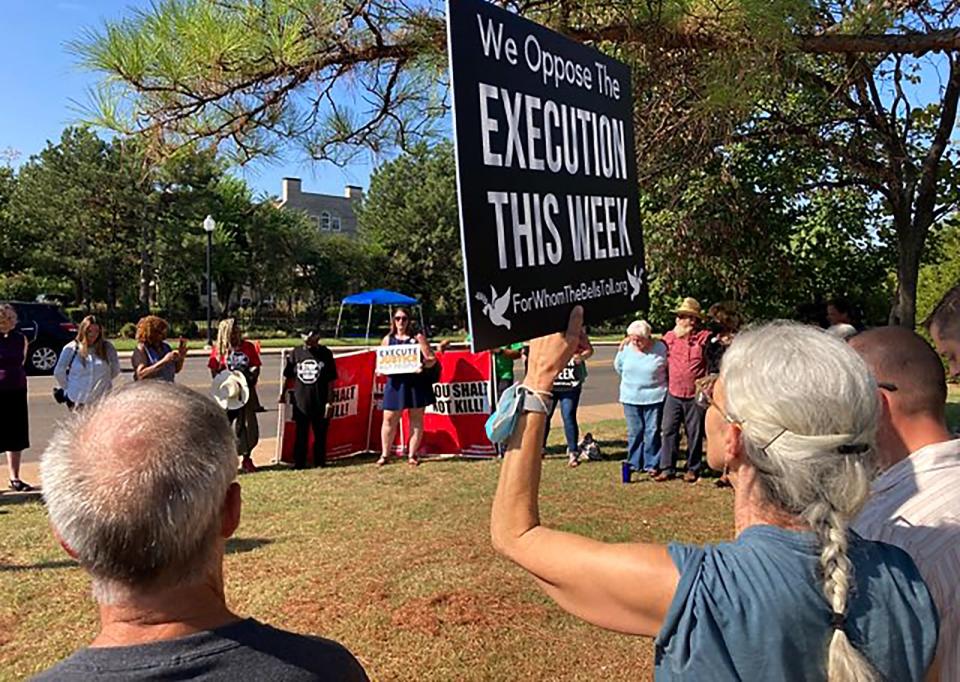
Heath stood at the inmate's feet and read passages from the Bible about forgiveness. He said Coddington responded.
"I can't give you his exact words, but they were, 'God, forgive me for my sin.' And I said, 'In the name of the the Father, the Son and the Holy Spirit, your sins are forgiven.'"
Heath said Coddington complained in the minutes before the execution's start that Stitt had not announced his decision on clemency sooner and gave no reason for denying it.
Coddington was scheduled for execution after a federal judge in June rejected death row inmates' complaints about the sedative used in the lethal injection process.
The Oklahoma Pardon and Parole Board voted 3-2 on Aug. 3 to recommend clemency after Coddington made an emotional apology to the Hale family.
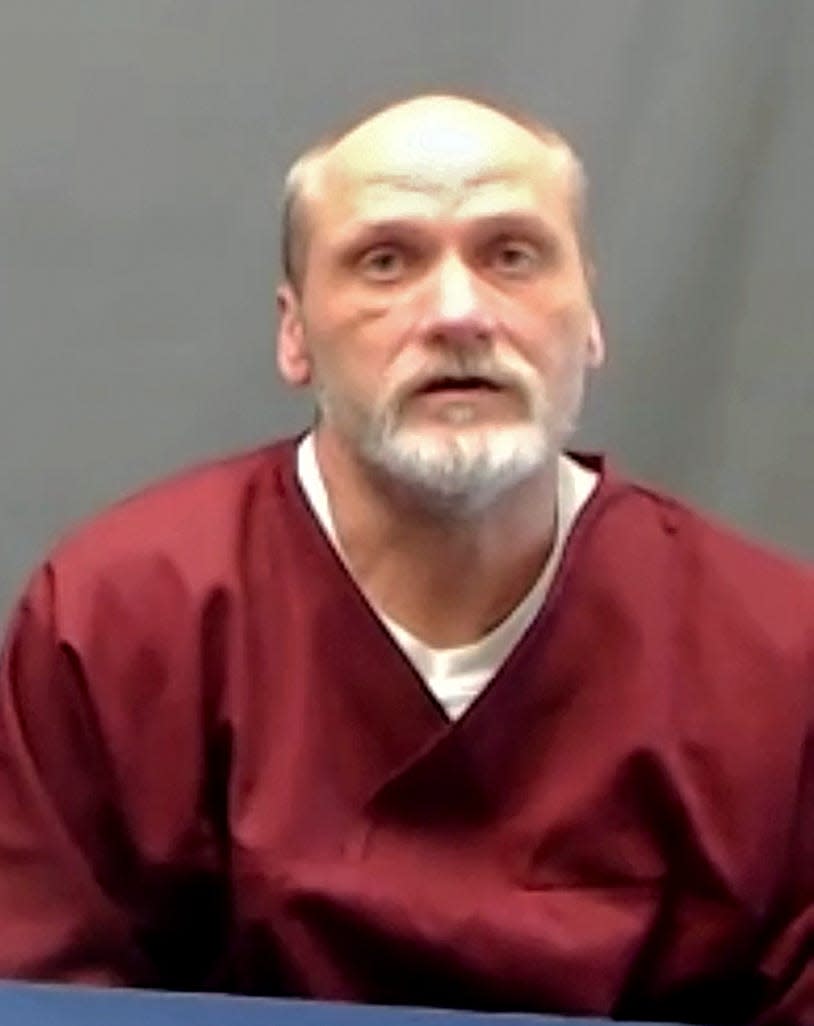
"The person that he welcomed into his home was not me. It was a shell of me. It was a drug addict that didn't deserve his friendship," Coddington said at the hearing. "And I'm very sorry that I took their dad, their grandpa. I still today would do whatever I have to do to make it right to his family.
"I can't apologize enough for what I did," he also said in tears. "And for someone to say I don't care and that I have no remorse is the only thing that I have to say is not true because I've never forgot Al."
Attorneys for the state contended his statements of remorse were disingenuous or, at best, grossly exaggerated. They contend he likely intended to kill Hale all along to avoid going back to prison.
"The facts on the whole — and the jury's decision to impose death — certainly support a far more sinister plan on Mr. Coddington's part," assistants to Attorney General John O'Connor told the parole board.
Oklahoma's problems with executions spurred anti-death penalty movement
Oklahoma has executed four other inmates in the last year after a long hiatus. Three had been kicked out of the lawsuit over the lethal injection process and one was never in the case
Coddington had been scheduled for execution last March after he, too, was kicked out of the lawsuit. He was not executed because the judge allowed him back in the case.
He was the 115th inmate put to death by lethal injection since the state first used the procedure on Sept. 10, 1990, according to a Corrections Department fact sheet.
Oklahoma has become a focal point for the anti-death penalty movement because of its history of problems with lethal injections. The execution of John Grant last October was widely described as botched after media witnesses reported the inmate repeatedly convulsed and vomited.
The debate over capital punishment has intensified since the Oklahoma Court of Criminal Appeals on July 1 set dates for the 25 executions. "Oklahomans overwhelmingly voted in 2016 to preserve the death penalty as a consequence for the most heinous murders. I’m certain that justice and safety for all of us drove that vote," Attorney General John O'Connor said when the schedule was released.
A new group, Oklahoma Conservatives Concerned About the Death Penalty, held a news conference Thursday to announce its formation.
Oklahoma City's archbishop, Paul Coakley, spoke out again against the death penalty Wednesday after the governor denied clemency.
"There are other ways to administer just punishment for crimes without resorting to lethal measures that do not align with our state’s pro-life values and only serve to perpetuate the cycle of violence," Coakley said. "Pray for an end to the death penalty."
Up next is Benjamin Cole, who was sentenced to death for killing his infant daughter in 2002 in Claremore because she wouldn't stop crying. His execution is set for Oct. 20.
His attorneys contend he is now insane and cannot be executed. They are asking a Pittsburg County judge to order the warden at the Oklahoma State Penitentiary to commence proceedings that will lead to a jury trial about his mental state. A hearing is set for Sept. 21.
Addison Kliewer contributed to this report
This article originally appeared on Oklahoman: Oklahoma death row inmate James Coddington executed for 1997 murder
